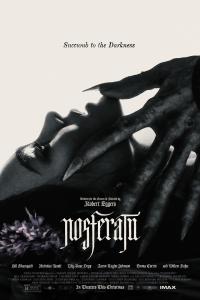Torrent details for "Juilliard String Quartet - The Celebrated Early Recordings 1949-1952 [FLAC]" Log in to bookmark
Controls:
Language:
 English
EnglishTotal Size:
920.13 MB
Info Hash:
49bd04ebee03d02cbe420021fb17443b664acd48
Added By:
Added:
17-10-2023 22:50
Views:
360
Health:

Seeds:
1
Leechers:
0
Completed:
1

Artist: Juilliard String Quartet
Title: The Celebrated Early Recordings 1949-1952
Year Of Release: 2012
Label: West Hill Radio Archives
Genre: Classical
Quality: FLAC (Tracks)
Total Time: 05:47:30
Total Size: 923 mb
Tracks:
CD 1
Bartók: String Quartet No. 1, Sz 40 (Op. 7)
Bartók: String Quartet No. 2, Sz 67 (Op. 17)
CD 2
Bartók: String Quartet No. 3, Sz 85
Bartók: String Quartet No. 4, Sz 91
CD 3
Bartók: String Quartet No. 5, Sz 102
Bartók: String Quartet No. 6, Sz 114
CD 4
Schoenberg: String Quartet No. 1 in D minor, Op. 7
Schoenberg: String Quartet No. 2 in F sharp minor, Op. 10
CD 5
Schoenberg: String Quartet No. 3, Op. 30
Schoenberg: String Quartet No. 4, Op. 37
CD 6
Berg: Lyric Suite - three movements for string orchestra (1928)
Webern: Five movements for String Quartet, Op. 5 (1909)
Berg: String Quartet, Op. 3
All the performances are fully engaged and involved and small technical or rhythmic incongruities are of very little account in the face of such committed and often revelatory playing. The earlier incarnation of the Juilliard lacked the tonal finesse that increased with experience and cellist Arthur Winograd was a noticeably less suave performer than Claus Adam who succeeded him, though that s not always to Adam's advantage in this of all repertoire. The pleasures of the early set are however legion. Winograd's ardent expressivity courses through the first movement of No 1 not over vibrated and with a rapt intensity. The Allegretto is illuminated by deliciously swaying rhythmic impetus and the finale is well controlled, with both violinists varying tonal production to real musical advantage. In the Second Quartet the Juilliard manage to integrate the much slower, more ruminative central panel of the first movement with judicious imagination. In the second movement there is no etiolation they mine the mordant, hothouse atmosphere with impeccable logic and the finale is similarly sensitive. The Third Quartet of 1927 with its disparities and disjunctions of tone and dynamics receives an excellent traversal though one perhaps not optimally adjusted to the vertiginous heights and depths of the work. Still this is an outstanding performance on its own terms, the high point of which is the second movement strongly accented, the folk inflections integrated, sensible dynamics, resilient and determined music making, ironclad in rhythm, impressive in stature. The Fourth Quartet was the one famously criticised by Shostakovich; the Juilliard meets its exceptional challenges head on. Very occasionally one feels that the Juilliard hadn t quite reconciled itself to some of the more problematic aspects of the writing and were consequently less propulsive than they might be but this is a small quibble. They are more than adequately sensitive in the final movement Non troppo lento. The Fifth features a most exactingly beautiful slow movement, one to which the Juilliard brings tremendous reserves of sustaining and luminous power; the interiority of the movement is delineated with unerring rightness; listen to the way Hillyer's viola steals into the texture as one small but singular example of the finesse and acute ear for balance that all these performances possess. Equally the fresh air convulsiveness of the finale is intoxicating vividly played, humorously inflected, triumphantly concluded. The Sixth Quartet receives a performance that teems with passionate declamation. Now driving and intense, now affecting and lyrical, the Juilliard retain equipoise and a balance between the polar oppositions of the work that only strengthens and deepens its profile. This is not immaculate playing, the tone does roughen and occasionally coarsen but this is playing that exists through and above such considerations; playing of immediacy and conviction, of a rare imaginative understanding. The transfers are excellent. The performances are, obviously, outstanding. Whichever cycle you possess, whether by the Juiliard or by other Quartets - more recently the Takacs and Vegh come to mind - this first cycle will remain of prime importance in the discography of the Bartók Quartets... Nor, too, should one bypass the sixth disc in West Hill's collection, which contains the 1950 recording of Berg's Lyric Suite, and the 1952 disc of Webern s Five Movements for String Quartet and the String Quartet Op. 3. These are also profoundly important documents, played with the expected intellectual and digital command that the group so imposingly possessed... Jonathan Woolf --MusicWeb.
Previously uploaded at Demonoid











































